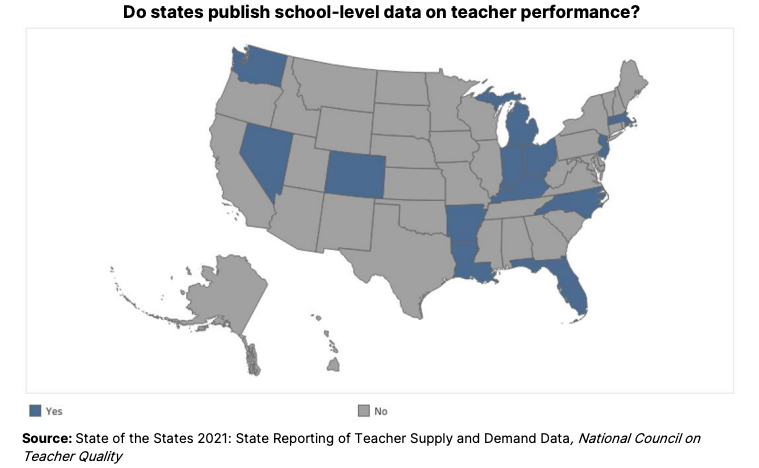Minnesota does not require teachers to receive feedback after an evaluation
Minnesota school districts are not required to provide written or in-person feedback to teachers regarding their evaluation, according to an analysis of teacher evaluation policies by the National Council on Teacher Quality (NCTQ).
Minnesota is one of eight states (the others being Alabama, Alaska, the District of Columbia, Iowa, Montana, New Hampshire, and Vermont) that does not require districts to provide any feedback following an evaluation. The rest of the states require either written or in-person feedback or both.
Given the alarming academic challenges students are facing following prolonged school closure decisions, supporting teachers demonstrating strong performance in the classroom, and helping educators grow where necessary, is “more urgent than ever,” writes the NCTQ.
Evaluations should be connected to timely, specific, and actionable feedback, and give teachers opportunities for growth and chances to demonstrate improvement. As schools take on the urgent work of helping students recover from the pandemic, this is especially important. Yet far too many states still do not require that teachers receive any feedback after an observation, or that evaluations will be used to provide targeted growth and support. States also miss critical opportunities to use evaluation data at the state level to drive system-level improvement in how teachers deemed effective are distributed across the state.
Minnesota also doesn’t publish school-level data on teacher effectiveness. A state to learn from on this includes Colorado, which “publishes data on the distribution of effective teachers at the state, district, and school levels, and analyzes patterns in how effective teachers are distributed based on student demographics,” shared NCTQ. Colorado and the 12 other states that also publish school data on teacher performance “bring a level of transparency about the teacher evaluation data and teacher performance that could help direct resources and support where they are most needed.”
